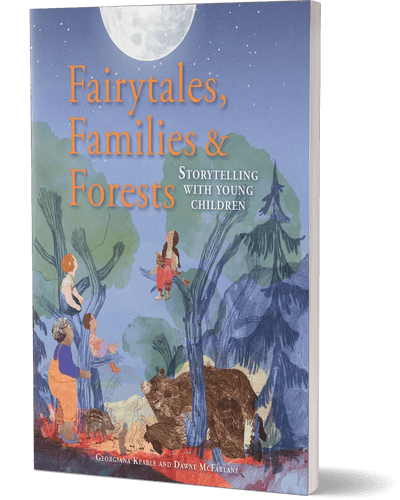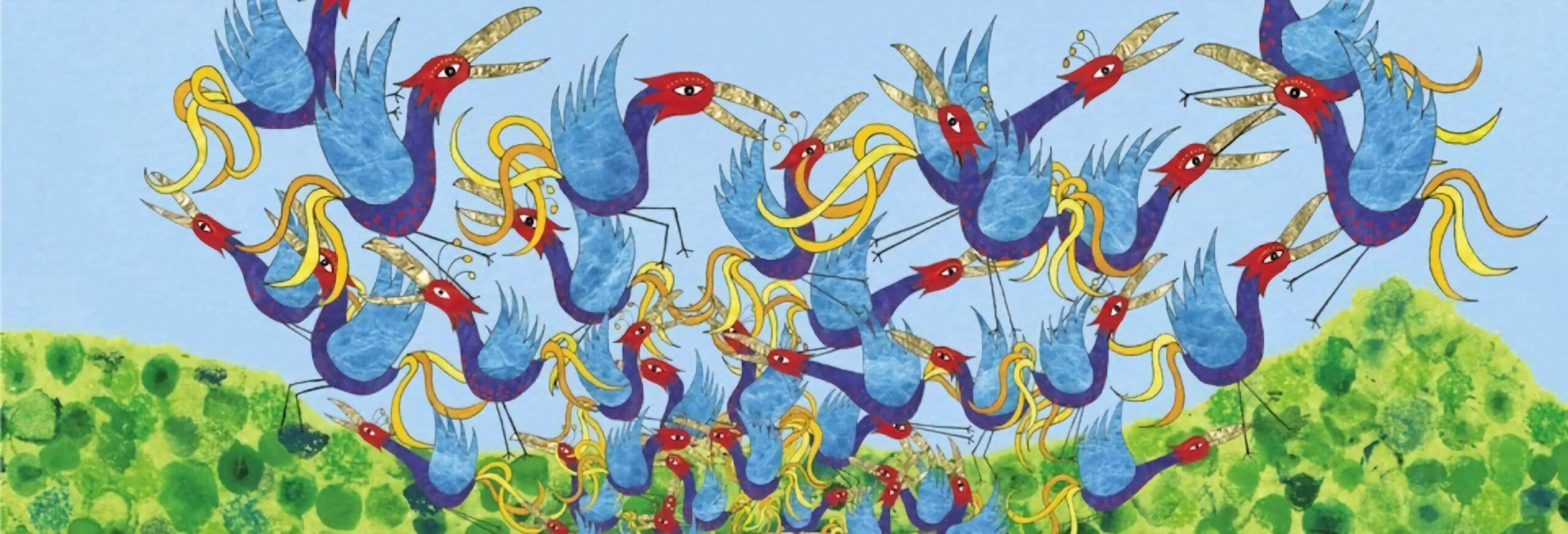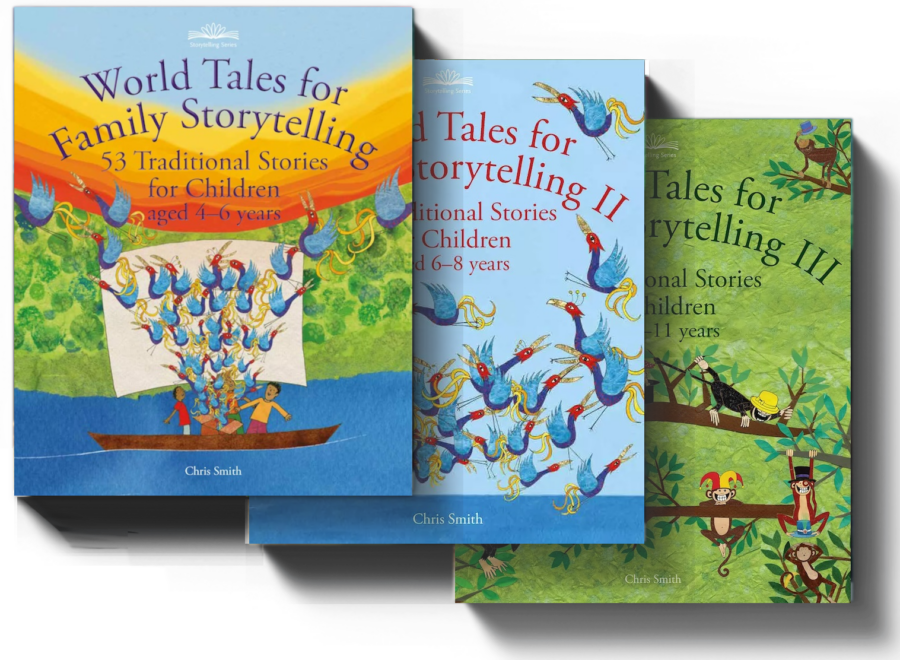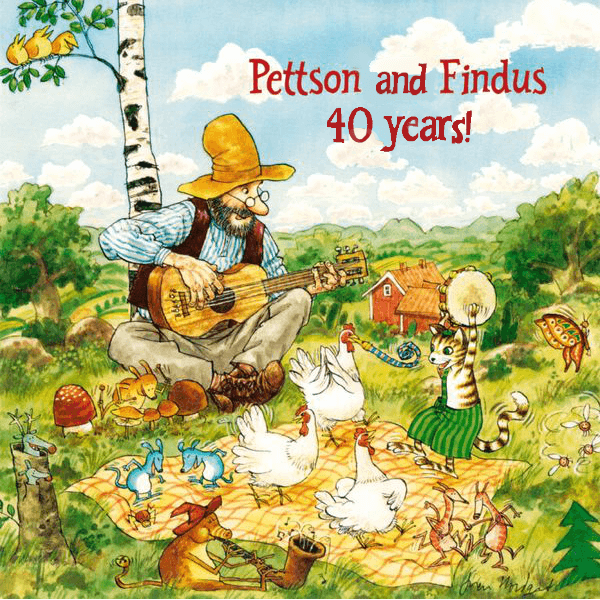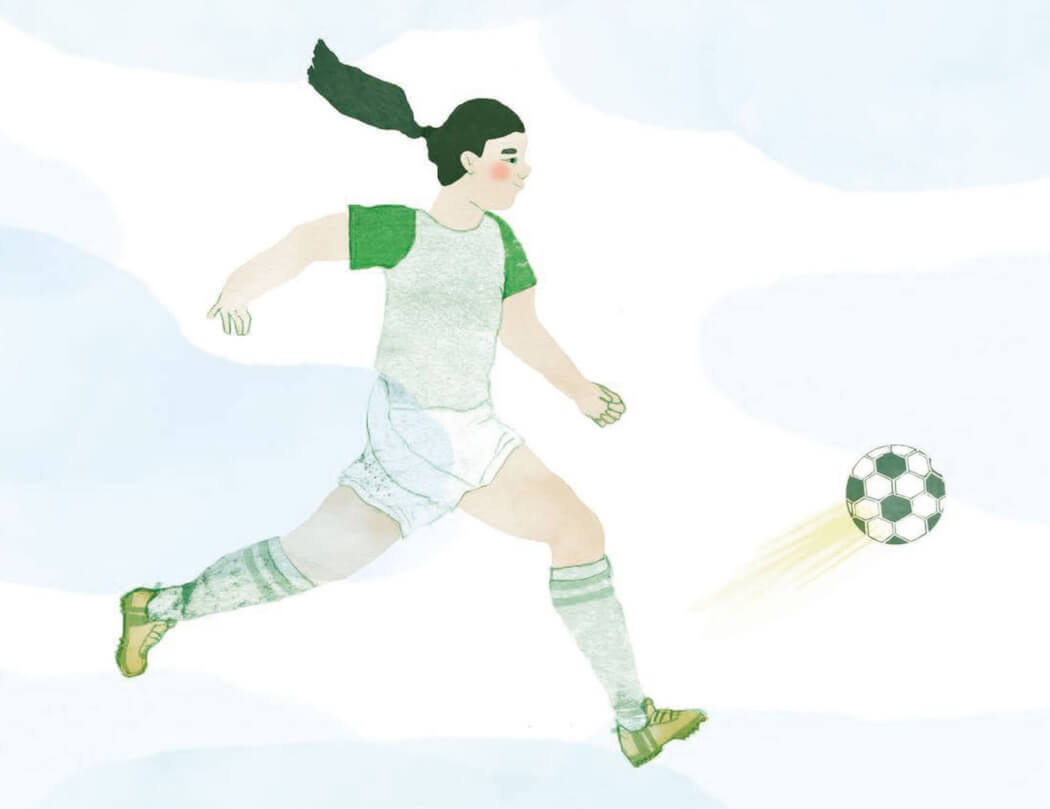
Georgiana Keable writes: In 2004 I started a group of storytellers called ‘The Storytelling House’. One of our projects was to go to schools and offer to tell the children a story about anything they wanted. What most of them asked for, not surprisingly, was a football story, so I made one, using many of the same processes I would when working on a traditional story.
Far away in a small town in England, a young man got a gift for his birthday.
It was from his grandfather. He unwrapped it. It was a football. The football was old, made of red brown leather, but his grandfather had polished it to make it shine.
His grandfather leant over and whispered into his ear, ‘When you kick the ball, think, “Hit the target” – naming the target you want. You’ll see.’
The young man smiled, thinking, ‘Poor old Grandpa is starting to get a bit strange in the head.’ Still, he went out and dribbled the ball around and, just for the fun of it, he kicked the ball, thinking, ‘Hit that gatepost.’ The ball sailed through the air like an arrow and hit precisely on the gatepost.
‘Oh!’ He wasn’t usually such a good shot. Now he thought, ‘Hit that tree across the water, the left branch. Again PANG. The ball sailed through the air and hit the left branch!
Soon he became popular. All his friends wanted to play with him and his football. But as time went on he took the football out more and more rarely. He wanted to keep it to himself.
He got a job in the Post Office and moved into his own flat. In the evening when he finished work, he cleared the room so there was nothing that could be broken and he played with the football. He bounced it on his knees, on his head.
And when he was done he looked at the ball and said, ‘I wish that one day I will have a child who is a genius at football, a world-famous celebrity’
But there was a problem with his wish. He didn’t like girls. He thought they were so silly and strange. The whole idea of having a girlfriend was just really embarrassing. How, then, would he have a child? I don’t know if you have noticed, but sometimes if you wish for something long enough and hard enough, it comes true but not in the way you expected.
In England they don’t have mailboxes like in America, Canada or Norway; people have letterboxes in their front doors. One day the man was posting letters in a big block of flats when he heard behind the door, ‘I want a child, but there are no men who want children.’
Without thinking, he shouted, ‘That’s not true!’
It was quiet for a while behind the door and then it opened. A young woman peeked out. She had red curly hair and he thought she was pretty and before he knew it he had a girlfriend. It wasn’t too bad. It was really nice in fact and they sat and chatted about children together, and before he knew it they were getting married and were looking forward to having a baby.
The weeks went by, months passed, the years passed and they had no children. She looked at him and thought, ‘It’s probably my fault,’ and he looked at her and thought, ‘It must be my fault.’
Every night when she was sleeping he would take out the football and do tricks, bouncing it on his knees, then on his head, and think about how he wanted to have a child who would be a world-famous footballer.
One evening, three years after they had married, he had forgotten to buy flowers or say he still loved her and they quarrelled for the first time. She went to bed early, but he couldn’t sleep. He tossed and turned and finally got up to make a drink. Do you know what people drink in England? Tea with milk. As he walked past the living room he heard a strange sound. He popped his head round the door and saw that the sound was coming from the football on the shelf.
He tiptoed nearer. The football opened like a melon cut in two and there inside the football was a baby. A lovely tiny baby. His heart melted, it was the sweetest thing he had seen, but then he looked more closely.
Oh no! Why had he wished for a child? Why hadn’t he wished for a boy?
This was a girl! How could he have been so stupid? He looked at her again and she opened her big eyes and he could have sworn that she smiled and winked at him and started kicking her tiny little legs. He got an idea. ‘Just wait here,’ he said.
He ran out to the 24-hour shop and bought tiny little nappies, milk and a baby bottle. He came back, put the nappies on the baby and woke up his wife.
‘Surprise!’ he said. ‘I didn’t forget; I got a gift for you. Here he is. He’s real! It’s a baby boy, and you don’t have to worry: I’ll always be the one to change his nappies and do all the hard work.’
And so it was. How did the little baby learn to walk? By leaning against the football. Her first step was a small kick!
The parents were so happy and proud. The baby got a boy’s name, boy’s toys and boy’s clothes and while she was still in kindergarten she started playing soccer with the children at school. She grew tall and strong and really good at playing football. She was so light that sometimes it seemed as though she was dancing over the pitch, and other times that she was like a wind blowing through the other players and scoring goals, again and again. But though she was tough and clever she was often alone. She had no real friends.
One Saturday afternoon when she was twelve years old she had played in the Junior league. The match went well. Her team had won. She came home with her dad and he was happy and made her favourite Saturday dinner – fish and chips.
When they had eaten she looked at him and said, ‘Dad, why am I so weird? Why am I not allowed to shower together with the others?’
‘You’re not weird, my darling,’ he said. ‘You are special. You have to pretend you’re a boy because you’re going to be a world-famous footballer and you’re going to have more money and power than you can dream of.’
That’s how it was. At last she was going to play a trial for Manchester United. Several famous managers were there hunting for talent. ‘Look at that tall slim boy,’ they said. ‘He plays like an angel’
After the candidates had played, they all had to step forward and introduce themselves. When it was the turn of the secret girl, she called up to her father, sitting in the stadium, and he threw his ball down to her. ‘Good afternoon, she said. ‘Good afternoon, ladies and gentlemen. Today I’ve realised something. I love football but being a great player is not enough. I also want to be myself. All my life I’ve been pretending. I have played a part. I’m not a boy. I’m a girl and from now on I won’t pretend any more.’
‘They say that if I’m good at playing football I’ll get as much money and power as I want, but I realise that that’s not why I play football. I play because it’s fun.’ She put the football down on the ground. ‘This magic football has helped me so much, but I don’t need it any more. Now I wish that it will travel out into
the world to the one who needs it most.’
And she kicked – and the football flew high up above the stadium, high up into the air, shooting like an arrow, splitting the clouds and disappearing into the clear blue sky.
Do you think she stopped playing football? No! She was still an amazing player, but the difference was that from that day onwards she made lots of friends.
Where the football went to and what happened then – that’s a different story.
This story is from Fairytales, Families & Forests by Georgiana Keable and Dawne McFarlane, with beautiful illustrations by Araiz Mesanza. It is jam-packed with stories, singing games and rhymes of nature for ages 0–7 years.

